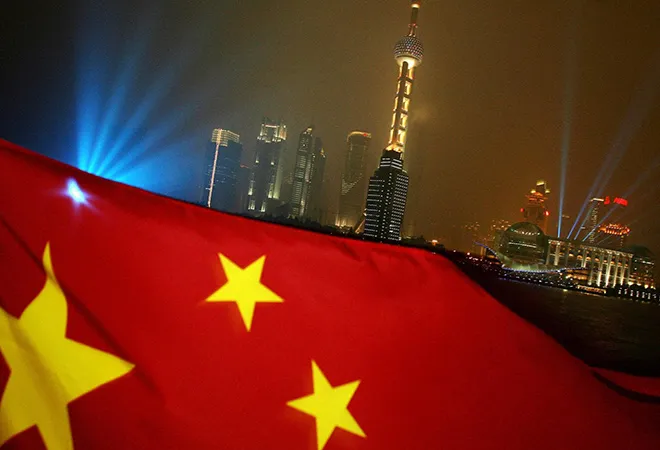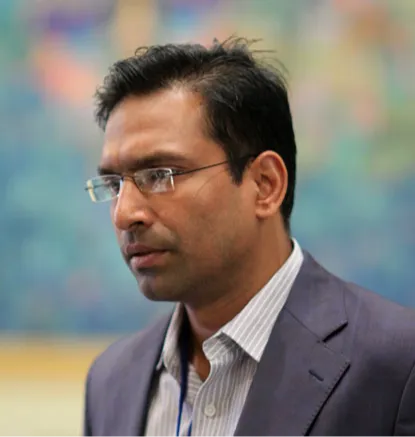-
CENTRES
Progammes & Centres
Location
With mounting pressure domestically and internationally, Xi might resort to a hyper-nationalistic path to deal with the legitimacy crisis

This is the 139th in the series–The China Chronicles.
On 10 March, China’s legislature, the People’s National Congress (NPC), unanimously elected Xi Jinping as president for an unprecedented third term. It also endorsed Xi as chairman of the Central Military Commission for another term. These were largely rituals to be performed given that the 20th Party Congress in October had endorsed Xi as the General Secretary of the Chinese Communist Party (CCP) and the military for another term. Powerful positions are being packed with Xi loyalists and allies. Li Qiang, Xi’s trusted confidante and a former Shanghai boss was elevated as the new Premier, while the former Vice Premier Han Zheng, a close ally of Xi, was promoted as Vice President. However, the most crucial appointment was the elevation of Li Shangfu as the country’s new defence minister. A staunch Xi loyalist and the key architect of the modernisation of the People’s Liberation Army (PLA), Li was sanctioned by the United States (US) in 2018 for violating Washington’s sanctions against Russia. In short, Xi’s coronation for the third term completes the consolidation of Party, state and military power at his command, something not witnessed since the times of Mao Zedong.
A staunch Xi loyalist and the key architect of the modernisation of the People’s Liberation Army (PLA), Li was sanctioned by the United States (US) in 2018 for violating Washington’s sanctions against Russia.
The end of collective leadership
Xi’s unprecedented third term breaks the two-term duration (10 years) established by Deng Xiaoping. Mao’s long reign (1949-1976) and his ideological experiments, particularly the Cultural Revolution which killed millions apart from driving the communist state to the path of near bankruptcy prompted Deng to set a term limit for the presidency. Thus, the 12th Party Congress (1982) commanded by Deng set the ideological, political, and economic direction for China over the next 35 years. The CPC was directed to give high priority to economic development and work on reducing its ideological rigidity. Following Deng’s dictum, Jiang Zemin and Hu Jintao followed the 10-year term limits and the Party largely stayed away from the economic management and micro-management of the private sector. Incidentally, this period witnessed China’s breathtaking economic growth, propelling the once poverty-stricken country to become the world’s second-largest economy in a matter of a few decades.
From an unknown Party Apparatchik to Emperor Xi
Since he took over the mantle from Hu Jintao in March 2013, Xi has assiduously worked to dismantle Deng’s doctrine of collective leadership that acted as a restraint on the leadership of Jiang Zemin and Hu Jintao. According to Cai Xia, a former official of the CCP (who was overseeing political training when Xi became General Secretary in 2012), the party, which once enjoyed relative autonomy, is under complete control of Xi and his loyalists. The crucial means through which Xi has achieved this is by purging key rivals through nationwide anti-corruption initiatives. To get an iron grip over the party and government, Xi undertook the most ruthless political purges whereby nearly 200 ministers and deputy minister-level officials were either imprisoned or sacked.
The CPC was directed to give high priority to economic development and work on reducing its ideological rigidity.
Challenges ahead
China’s leadership transformation characterised by unprecedented centralisation of power comes at a time when the country is facing serious challenges both internally as well as externally. The biggest challenge stems from a slowing economy and an unprecedented rise in unemployment. When Xi took over the mantle, the country’s economy was at peak double-digit growth. A decade later, China’s growth has come down to nearly 3 percent, raising alarms among the core policymakers. No wonder, reviving economic growth (setting a 5-percent growth rate) and accelerating employment topped among the key issues in recent NPC sessions. However, fulfilling these goals looks increasingly difficult. Coupled with global economic stagnation, an unfavourable international environment (supply chains moving away from China as foreign investors are wary of uncertain business prospects and domestic interferences), slowing domestic drivers of growth (low consumer demands, ageing population, rising inequality among others) and the disastrous Zero-COVID policy have considerably decelerated China’s growth prospects. The denial of high technology, particularly critical semiconductors, increasing geopolitical instability (growing conflicts with the west particularly the US) and new developments in the Indo-Pacific can make China’s renewed efforts to put the economy on the rail a challenging task.
China’s leadership transformation characterised by unprecedented centralisation of power comes at a time when the country is facing serious challenges both internally as well as externally.
Yet, the biggest roadblock to economic revival has emerged from the increasing interference of the CCP in economic activities. The private business, which has been at the forefront of China’s fairytale economic transformation, is under the close watch of the Communist Party bosses. Under Xi’s watch, CCP’s interference in the private sector, particularly the high-profile entrepreneurs in the technology and finance sectors have grown manifolds. The recent forcing of the country’s most famous tech icon Jack Ma to relinquish control over his prized assets has had chilling effects on other entrepreneurs. While party bosses have realised the folly and have announced much-needed course corrections in the concluded NCP sessions, the rot has gone too deep. The rapidity with which the party and government have merged their boundaries under Xi would require extraordinary efforts. A case in point is the announcement to create two new institutions: The National Financial Regulatory Administration and Central Science & Technology Commission, to further deepen the party’s grip over two key sectors of the economy.
One-man political system and emerging risks
While Xi’s political dominance looks complete and CCP seems to have deepened its grip on every aspect of the Chinese economy and society, these are not without challenges and risks. For instance, the CCP which enjoyed wide public support largely on the basis of producing high growth, creating employment opportunities and rapid human development is now deeply shaken by recent nationwide protests over Zero-COVID curbs. A rigid Zero-COVID policy since 2020 hit the growth very hard, rendering millions unemployed and an increasing number of foreign companies shifting their bases to other countries. General unemployment which was hovering around 5 percent before the pandemic is now touching a record 20 percent. Thus, while Xi has established a complete grip over the government, party and military, he looks increasingly vulnerable as the economy goes south and spectres of geopolitical conflicts grow. The most startling revelation of his growing unpopularity was during recent country-wide protests where angry protestors called for his removal. This is unprecedented in a country with the strongest surveillance system. In short, slow growth, rising unemployment, COVID-related curbs and increasing interferences of private businesses is taking a heavy toll on the party’s legitimacy.
A rigid Zero-COVID policy since 2020 hit the growth very hard, rendering millions unemployed and an increasing number of foreign companies shifting their bases to other countries.
However, there are geopolitical and security risks that can emerge from the legitimacy crises and growing vulnerabilities. As Xi (with his characteristic revisionist ambition to make China great again) faces huge domestic pressures and a hostile external environment/risks of isolation, he is likely to use conventional tools like most authoritarian populists do: play the nationalism card and create security threats narratives. Of course, he has deftly used the nationalism card ever since he took over the post of General Secretary of CCP. For instance, Xi in 2012 floated the slogans, “The Great Rejuvenation of the Chinese nation”, “Chinese Dream of rejuvenation” and “getting rich” to “becoming powerful” to soar up nationalism among the Chinese population. He may resort to a hyper-nationalist path given the legitimacy crises that he faces domestically. However, the real danger is an expansion of the theatres of conflicts particularly over the fate of Taiwan and in the neighbourhood, especially with India, Japan and Southeast Asian countries over the South China Sea. Wars and major conflicts always help nationalist and authoritarian populists to play victim cards and divert attention from their failures. With the burial of collective leadership and the removal of any resistance or check to his powers, the possibility of major policy mistakes or catastrophic incidents that were marked during Mao’s turbulent era cannot be ruled out. In short, as a new red star rises over China, the world must brace up for a more challenging time.
The views expressed above belong to the author(s). ORF research and analyses now available on Telegram! Click here to access our curated content — blogs, longforms and interviews.

Niranjan Sahoo, PhD, is a Senior Fellow with ORF’s Governance and Politics Initiative. With years of expertise in governance and public policy, he now anchors ...
Read More +